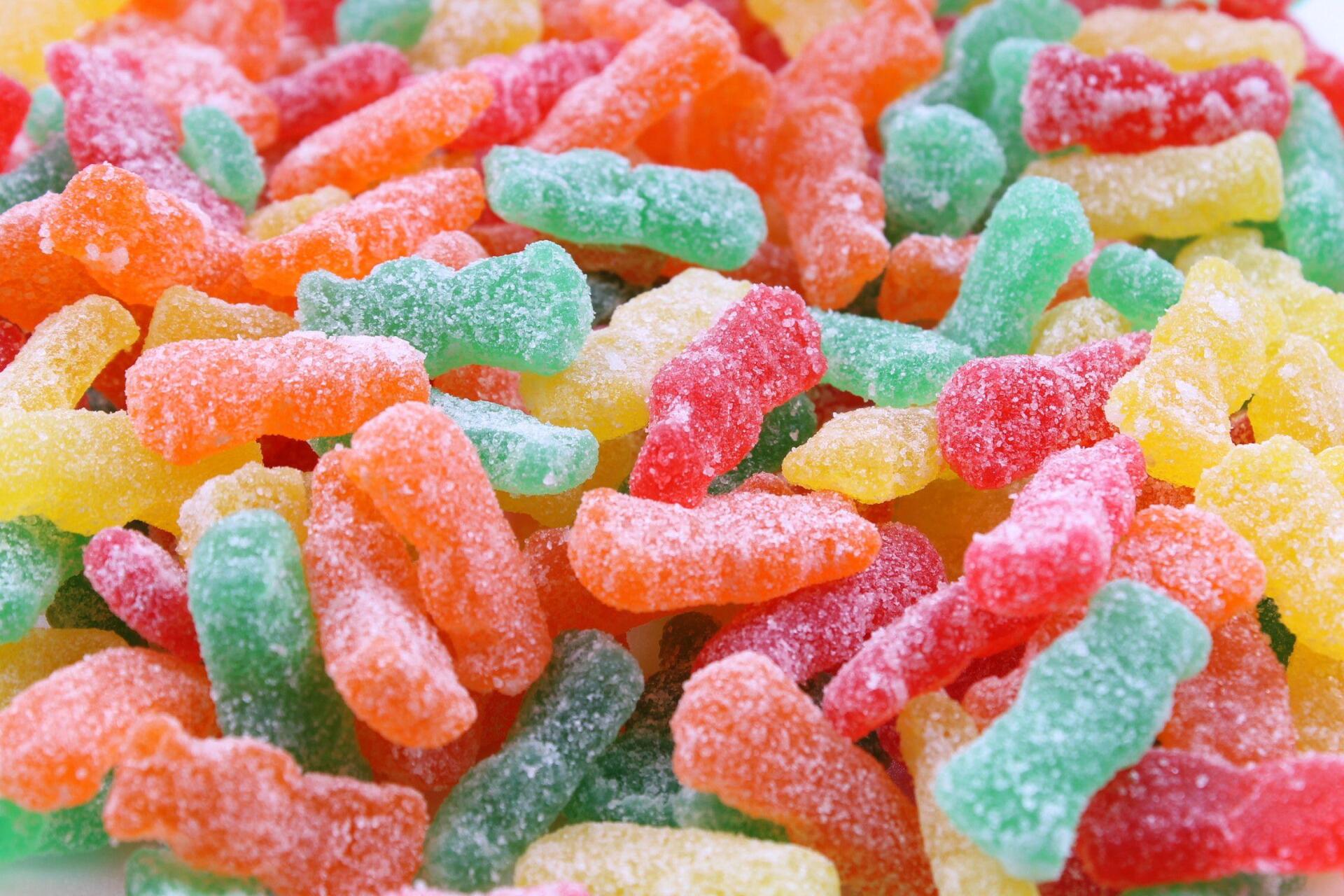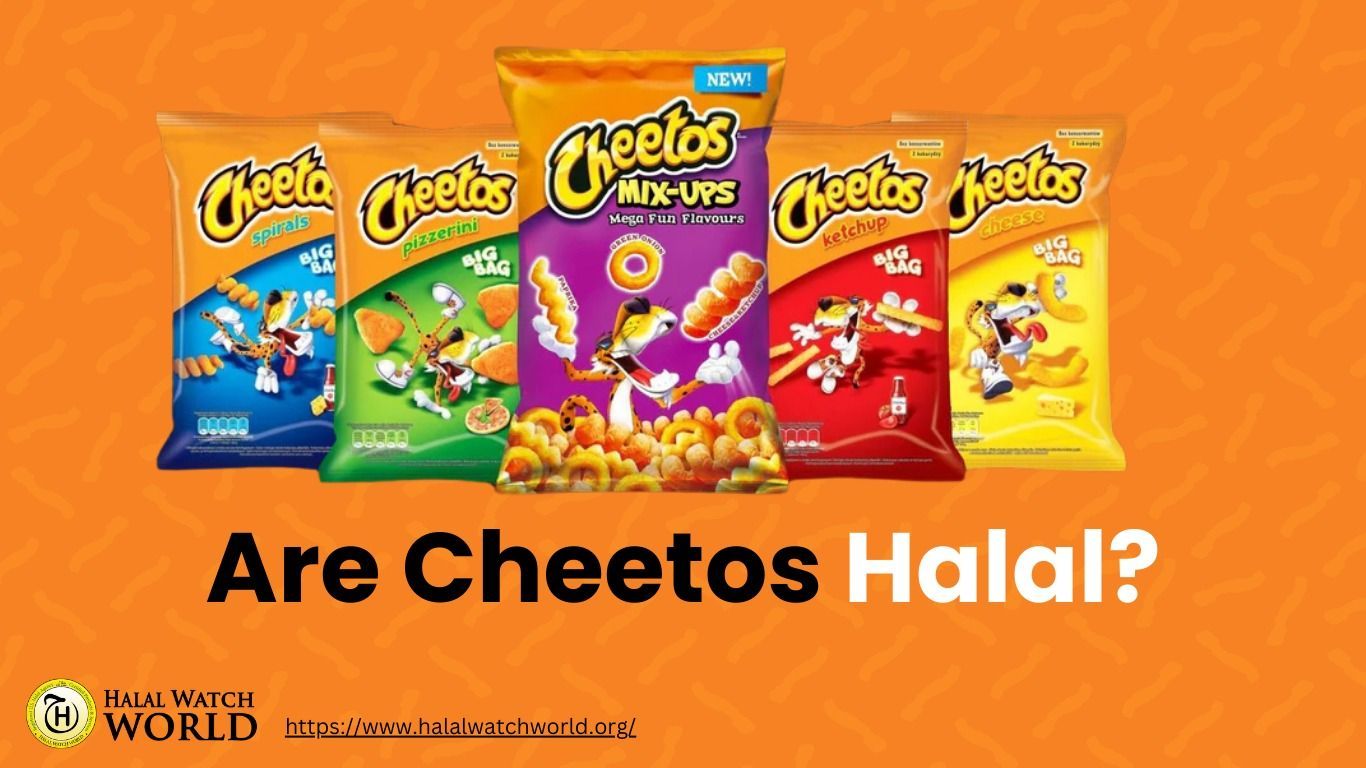Aa'isha Ebrahim is a Bachelor's graduate from the University of Cape Town, and that is the least interesting thing about her. She spends her free time doing impressionionist paintings on pottery and birthday cakes and writing a plethora of fictional pieces she may never publish. She often wonders if she'll ever know what a hedgefund is, or overcome her fear of dogs. She is currently content not knowing the answer.
1-877-HALAL-WW (+1-877-425-2599)
Is Sour Patch Kids Halal?

The Halal-Conscious Consumer reaches for a pack of Sour Patch Kids in the Supermarket and flips it over to check for a halal stamp – the presence of which would bring peace of mind and reassurance, the absence of which provokes doubt and unease. For many people this ‘doubt’ around a gummy sweet’s halal status might seem arb – how can a gummy not be halal? This level of scrutiny is surely… pedantic – no?
No.
Without boring you with the intricacies around product manufacturing and packaging; it is entirely possible that whilst a product may not strictly contain pork or animal derivatives, its halal status may become compromised due to cross-contamination.
However, in the instance of gummies, specifically, there is an extra element that rouses suspicion: its gelatinous nature.
Gelatin is an insoluble protein, commonly used in production of commercial food and pharmaceuticals. It is made through the process of boiling animal skin, bones and cartilage so as to extract the collagen. When it comes to the food industry, this versatile ingredient is primarily used as a stabilizer, an emulsifier and a foaming agent. When it comes to soft gummies, it’s what makes them go…squish. Gelatin is almost exclusively of two types, the first - and most popular - made entirely from pork, and the second, derived from bovine. It’s no wonder this ingredient is a long-standing controversial and extensively researched topic in the halal-conscious community.
In the name of eradicating doubt, we embarked on a little journey to establish the halal status of Sour Patch Kids – a question that seems to plague many. Across hundreds of online forums, you can find consumers frantically researching whether or not this product is fit for the halal-conscious, calling out to the learned to pull through with a fatwa[1].
This question could have been addressed conclusively and decisively if all of ingredients in this popular, household sweet were disclosed to the public. However, Sour Patch Kids does not list gelatin as an ingredient in their product, and when we inquired about their gelling agent, their response was that such information was ‘proprietary’.
Dang.
If you’ve gotten this far in the article you might be thinking: well, I still don’t have my answer, thanks. I would like to invite you to reframe and consider that you do. This appears to be one of those ‘I guess we’ll never know’ scenarios, which can feel frustrating and limiting because… sometimes you just want to kick it back with a packet of Sour Patch Kids, I guess.
A big part of being a halal-conscious consumer – being a conscious consumer, generally – is coming to terms with the reality that sometimes our needs will not be met. And ‘needs’, here, can range from literal dietary requirements to certainty. Certainty and integrity is primary to halal-consciousness. When it comes to what we consume, both literally and figuratively, the goodness of it – the purity of it – should not be compromised on, or dubious.
In the words of our Beloved Prophet (PBUH), “Leave that which makes you doubt for that which does not make you doubt.”[2]
[1] Fatwa, in Islam, a formal ruling or interpretation on a point of Islamic law given by a qualified legal scholar (known as a mufti).
[2] Sunan An-Nasa’i.
References:
Zin, Z. M., Mhd Sarbon, N., Khairi Zainol, M., Afifah Jaafar, S., Mohamad Shukri, M., & Asyraf, H. (n.d.).
al-Khattiib, N. (n.d.). Sunan An-Nasa'i. Darussalam.








